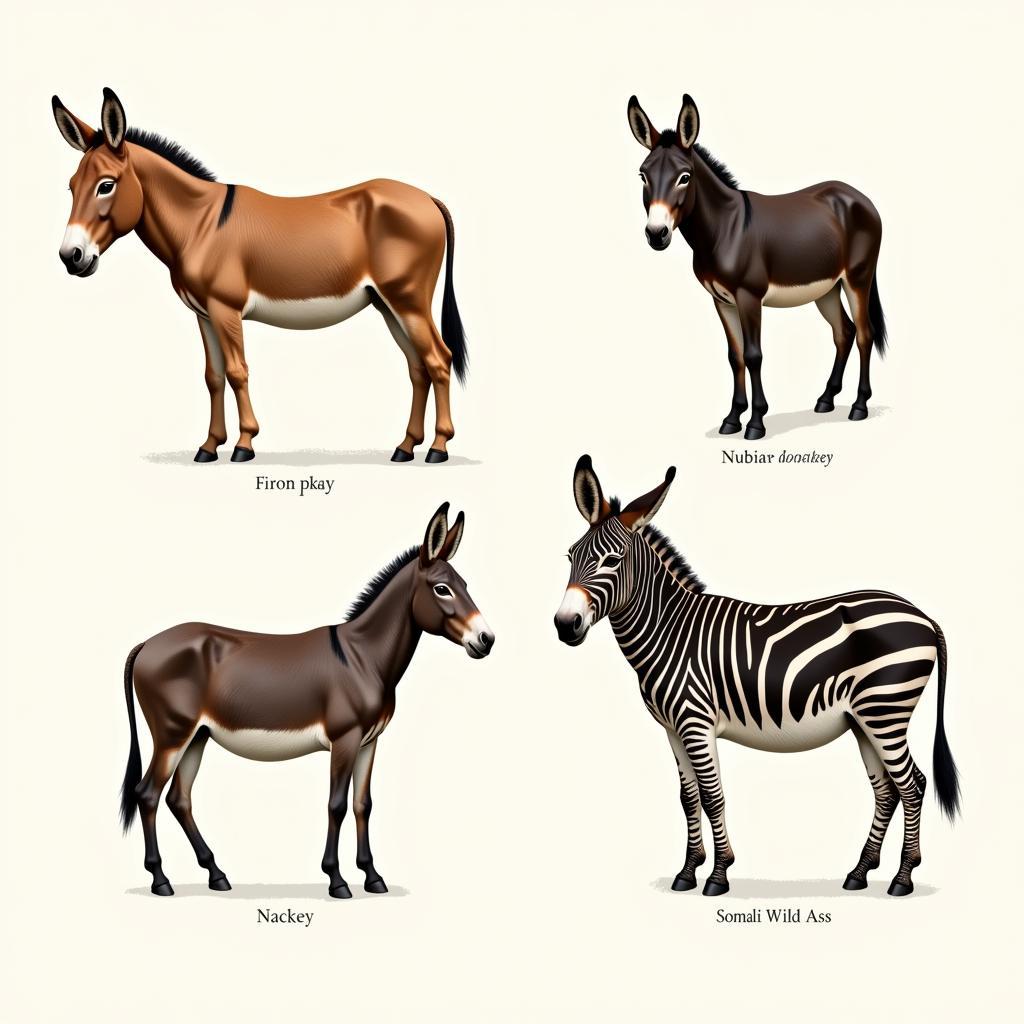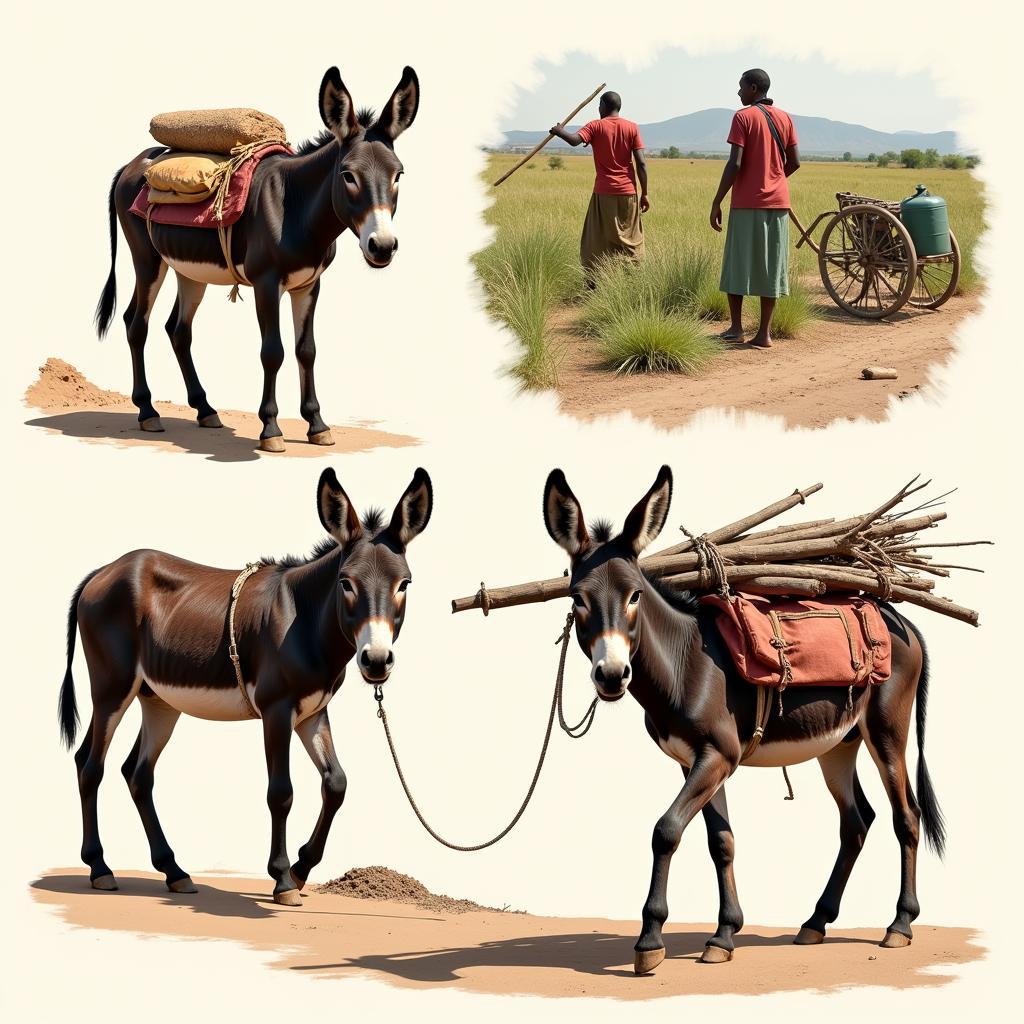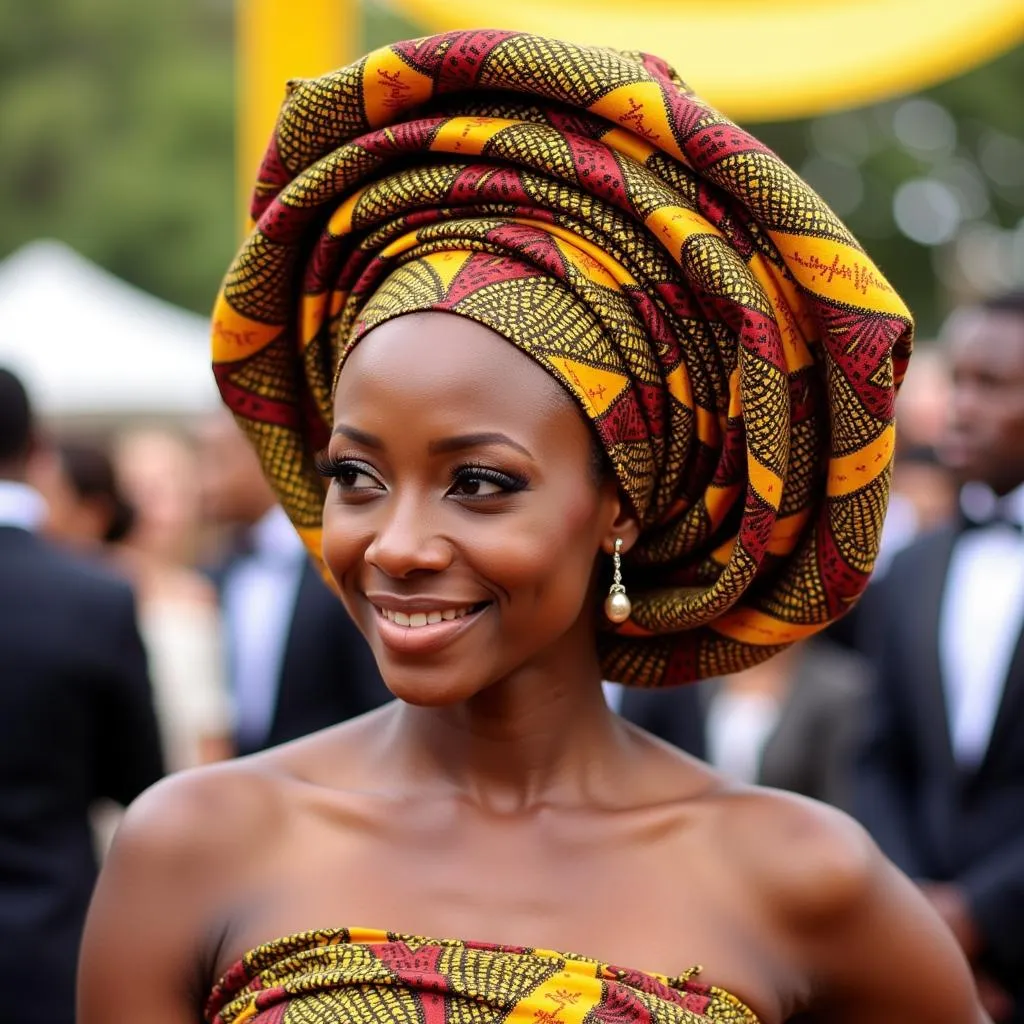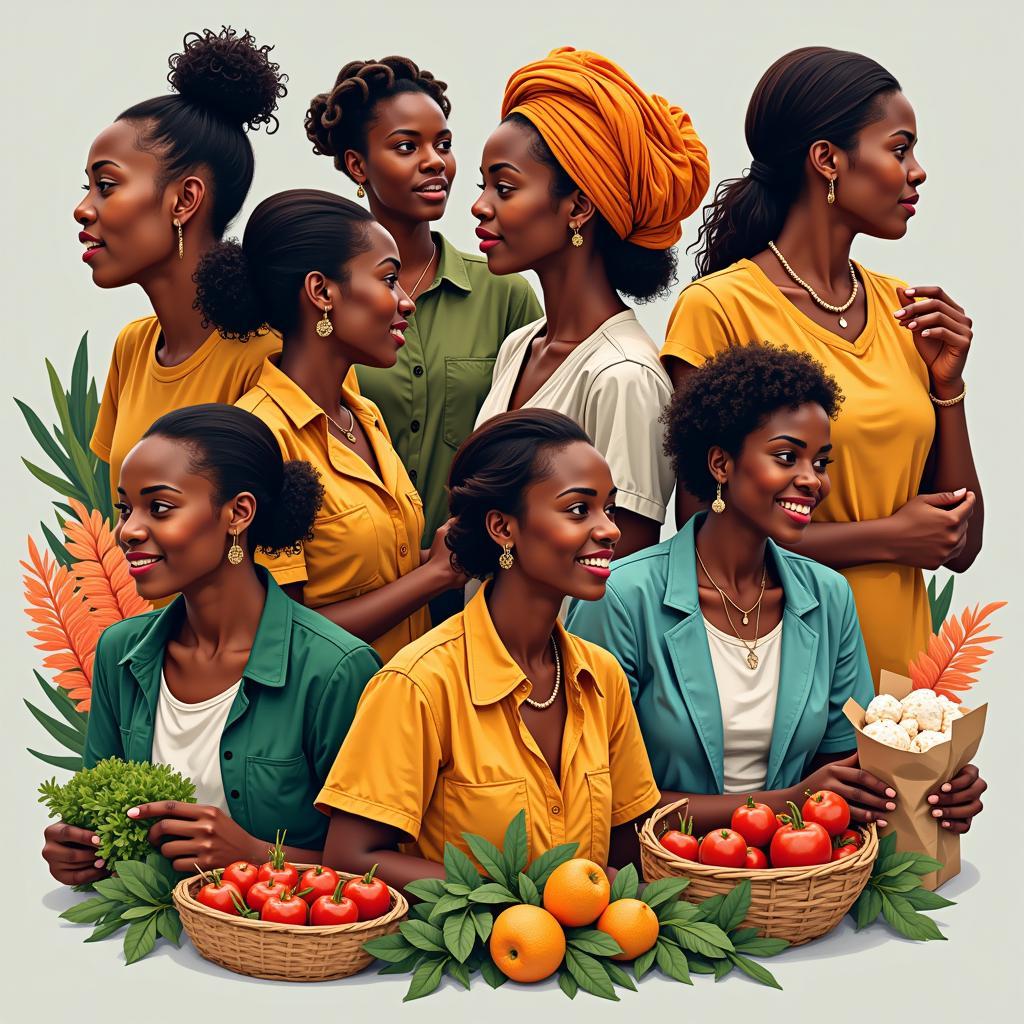The African Donkey: A Beast of Burden and Cultural Icon
The African Donkey, a resilient and often overlooked creature, plays a vital role in the lives of millions across the continent. From bustling marketplaces to remote villages, these hardworking animals are integral to the economic and social fabric of many African communities. This article explores the significance of the African donkey, delving into its history, its diverse roles, and the challenges it faces in the modern world.
The History and Diversity of the African Donkey
Donkeys have been present in Africa for millennia, their domestication dating back to ancient Egypt. Over time, distinct breeds have evolved, each adapted to the specific environmental conditions of their region. These breeds vary in size, coat color, and physical characteristics, reflecting the diverse landscapes of the continent. Some, like the Somali Wild Ass, retain a wilder spirit, while others, like the Nubian donkey, are known for their strength and endurance. The introduction of other donkey breeds from outside Africa has further contributed to the genetic diversity of the African donkey population.
One fascinating aspect of African donkey diversity is the presence of striped animals. For more information on this, you can explore resources related to the African donkey with black and white stripes. The important role donkeys play in rural African Life, particularly carrying goods and people, cannot be overstated. This is often depicted in images such as an African boy on donkey.
 African Donkey Breeds: A Showcase of Diversity
African Donkey Breeds: A Showcase of Diversity
The African Donkey’s Role in Society and Economy
Across Africa, the African donkey is far more than just a beast of burden. It’s a vital economic asset, providing essential transportation for goods and people, especially in rural areas where motorized vehicles are often inaccessible. Donkeys are used in agriculture, carrying crops to market and helping with fieldwork. They are essential for fetching water, firewood, and other necessities, freeing up valuable time for other tasks. The economic contribution of these animals is often underestimated, yet it is crucial for the livelihoods of countless families. In many cultures, the ownership of a donkey is a symbol of status and prosperity.
 The African Donkey's Economic Impact on Rural Communities
The African Donkey's Economic Impact on Rural Communities
Challenges and Conservation Efforts
Despite their vital role, African donkeys face numerous challenges. Overworking, inadequate nutrition, and limited access to veterinary care are common problems. The demand for donkey hides and gelatin in some parts of the world has also led to a surge in donkey theft and illegal slaughter, posing a serious threat to donkey populations in certain regions. Various organizations are working to address these challenges, promoting sustainable donkey management practices and advocating for greater protection for these valuable animals.
Another area of interest, albeit sensitive, is the topic of donkey breeding. While culturally taboo in many societies, understanding the reproductive cycle is vital for population management and conservation efforts. You can find further information on African donkey mating. There are even videos available if you search for African donkey mating video. However, it’s important to approach such sensitive topics with respect and awareness of cultural sensitivities. We strongly condemn any form of animal abuse, including the exploitation depicted in content related to “African fucking donkey.”
Conclusion
The African donkey is a cornerstone of many African communities, its contributions to the economy and society immeasurable. By understanding the challenges these animals face and supporting efforts to protect them, we can ensure that the African donkey continues to play its vital role for generations to come. The African donkey is not just a beast of burden; it is a symbol of resilience, endurance, and the deep connection between humans and animals.
FAQs
- What are the different breeds of African donkeys? There are several breeds, including the Nubian, Somali Wild Ass, and various local breeds adapted to specific regions.
- How are donkeys used in African communities? They are primarily used for transportation, agriculture, and fetching essential resources.
- What are the main threats to African donkey populations? Overworking, lack of veterinary care, illegal slaughter for hides and gelatin, and theft.
- How can I support donkey conservation efforts? You can support organizations working to promote sustainable donkey management and protect donkey populations.
- Where can I find more information about African donkeys? Numerous resources are available online and in libraries.
Common Situations and Questions:
- Scenario: A farmer needs a donkey for transporting goods to market. Question: Where can I find a reliable donkey for sale?
- Scenario: A donkey owner is concerned about their donkey’s health. Question: Where can I find a veterinarian experienced with donkeys?
- Scenario: A community wants to implement sustainable donkey management practices. Question: What resources are available to support community-based donkey welfare programs?
Further Reading and Resources:
For more information on related topics, you might find articles on African donkey mating helpful.
Need help?
For further assistance, feel free to contact us:
- Phone: +255768904061
- Email: kaka.mag@gmail.com
- Address: Mbarali DC Mawindi, Kangaga, Tanzania.
We have a 24/7 customer support team available to answer your queries.





